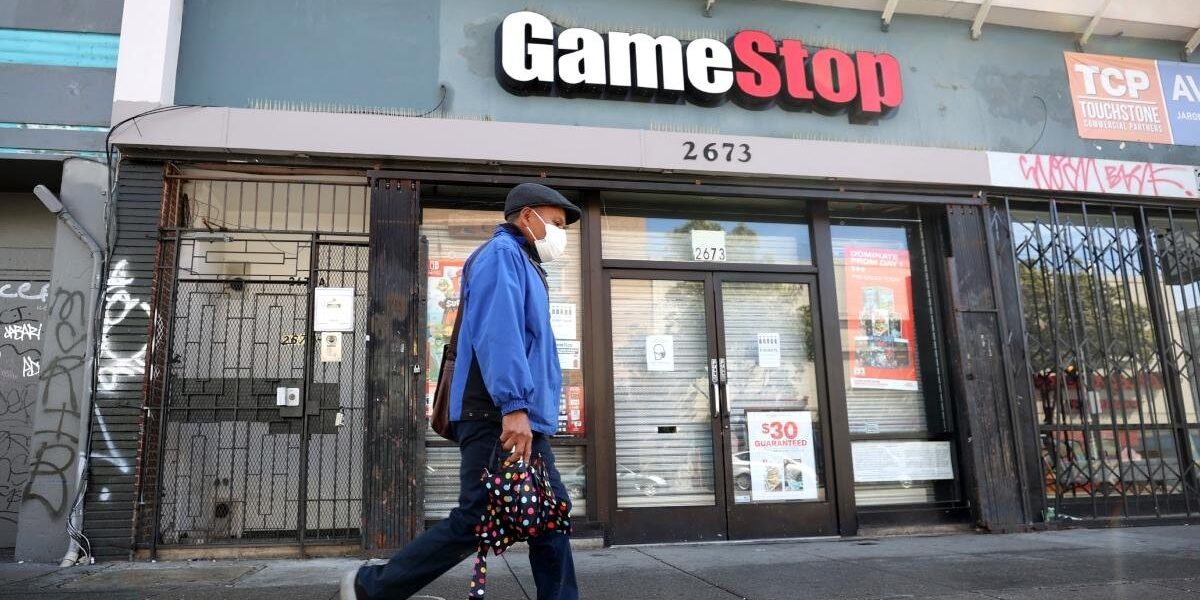Gamestop going out of business? Yes, it’s true. The iconic video game retailer, once a haven for gamers, now faces a challenging reality. What led to this unexpected turn of events? Is there a way to save Gamestop from closing its doors for good? Let’s delve into the heart of the matter and explore the potential solutions that could reshape the fate of Gamestop.
The Impact of GameStop Going Out of Business
Introduction
GameStop, a retail giant in the video game industry, has been a prominent player for years. However, recent developments have indicated that the company is facing the possibility of going out of business. This potential shift in the gaming landscape could have far-reaching consequences for gamers, developers, and the industry as a whole. In this article, we will explore the various aspects and implications of GameStop ceasing its operations.
The Rise and Fall of GameStop
GameStop’s journey from a small retail store to a major player in the video game industry has been both remarkable and tumultuous. Founded in 1984, the company quickly expanded, capitalizing on the growing popularity of video games. At its peak, GameStop operated thousands of stores worldwide, offering a wide range of gaming products and services.
However, the advent of digital distribution and online gaming platforms presented a significant challenge to GameStop’s traditional brick-and-mortar model. As more players turned to digital downloads and online marketplaces, the demand for physical game discs declined. This shift in consumer behavior, coupled with increased competition from online retailers like Amazon, dealt a severe blow to GameStop’s revenue streams.
The Implications for Gamers
The closure of GameStop would have several implications for gamers, including:
– Limited access to physical game discs: With GameStop no longer in business, gamers who prefer physical copies of games may face challenges in finding and purchasing new titles.
– Impact on pre-owned games market: GameStop was known for its robust trade-in and pre-owned game offerings. The absence of GameStop could impact the availability and pricing of pre-owned games.
– Changes in gaming culture: GameStop was more than just a retailer; it was a gathering place for gamers. Its closure could lead to a shift in the gaming community’s dynamics and culture.
The Future of Video Game Retail
As GameStop’s future hangs in the balance, the video game industry is at a crossroads. The rise of digital distribution and online storefronts has transformed the way games are bought and sold. Companies like Steam, Epic Games Store, and PlayStation Store have become dominant players in the digital marketplace, offering a wide selection of titles and exclusive deals.
The closure of GameStop could pave the way for new innovative retail models to emerge. From subscription-based services to virtual reality experiences, the future of video game retail is ripe for disruption. Developers and publishers may also explore new distribution strategies, such as direct-to-consumer sales and exclusive partnerships with digital platforms.
The Ripple Effects on the Industry
The potential demise of GameStop would send shockwaves through the video game industry. Developers, publishers, and hardware manufacturers that relied on GameStop for distribution and promotion would need to pivot their strategies. Indie developers, in particular, could face challenges in reaching a mainstream audience without GameStop’s platform.
Furthermore, the closure of GameStop could impact the resale market, as alternative platforms and retailers seek to fill the void left by the retail giant. Players who relied on GameStop for trade-ins and discounts may need to explore new avenues for buying and selling games.
In conclusion, the prospect of GameStop going out of business is a pivotal moment for the video game industry. While the closure of this retail giant may signal the end of an era, it also presents an opportunity for innovation and evolution. As the gaming landscape continues to evolve, adaptability and creativity will be key to navigating the changing market dynamics.
Wanna Know How Dire GameStop's Situation Is? Watch This…
Frequently Asked Questions
What could be the potential reasons for GameStop going out of business?
A combination of factors could contribute to GameStop facing the possibility of going out of business, including a decline in physical game sales due to the shift towards digital downloads, increased competition from online retailers and digital storefronts, and poor financial performance.
How might GameStop going out of business impact gamers and the gaming industry?
The potential closure of GameStop could have multiple implications, such as affecting the availability of physical game copies, impacting trade-in opportunities for gamers, potentially leading to job losses for employees, and influencing the overall competitive landscape within the gaming industry.
Are there any efforts being made to save GameStop from going out of business?
Various initiatives might be underway to try and rescue GameStop, including potential partnerships or restructuring plans, efforts to enhance the online shopping experience, diversifying product offerings, or exploring new revenue streams to adapt to the changing market dynamics.
How could the closure of GameStop stores affect the gaming community?
The closure of GameStop stores could result in a shift towards digital purchases, limited access to physical game collections, potential changes to pre-order bonuses or promotions, and a significant impact on the gaming culture that has been closely tied to physical retail experiences.
What steps can GameStop take to potentially avoid going out of business?
GameStop could consider strategies such as focusing on enhancing customer experiences, adapting to consumer preferences by expanding digital offerings, optimizing inventory management, exploring partnerships with game developers or publishers, and improving overall financial performance to potentially avoid the risk of going out of business.
Final Thoughts
GameStop going out of business highlights the shifting landscape of the gaming industry. Its failure to adapt to digital trends led to financial struggles. Customers now prefer digital downloads over physical copies. GameStop’s influential role is now diminishing. The closure of its stores signifies the end of an era in gaming retail. GameStop going out of business serves as a cautionary tale for businesses to evolve with changing consumer preferences.





